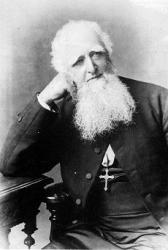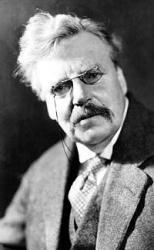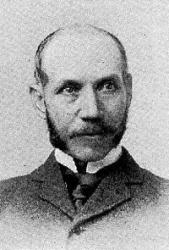Planning worship?
Check out our sister site, ZeteoSearch.org,
for 20+ additional resources related to your search.
- |
User Links
Person Results
Shududi, As'ad
1826 - 1906 Person Name: اسعد الشدودي Author of "على يسوع الفادي" in كتاب الترانيم الروحية للكنائس الإنجيلية Asaad Ibrahim alShdudi, 1826-1906
A Lebanese-born Mathematician, who studied and later worked at the American University of Beirut.
أسعد إبراهيم الشدودي
Shududi, As'ad
Karl Plank
1801 - 1825 Person Name: Plank Author (vs. 1, 2) of "Dort über jenen Sternen" in Sonntagschulbuch
Karl Plank
Henry Lascelles Jenner

1820 - 1898 Person Name: Rev. H. L. Jenner Composer of "[Jerusalem the golden]" in Calvary Songs Jenner, Henry Lascelles, D.D., was educated at Trinity Hall, Cambridge (LL.B. 1841, in honours; D.D. 1867). Taking Holy Orders in 1843, he held several appointments until 1866, when he was consecrated Bishop of Dunedin. He retired in 1871. He is at present [1891] vicar of Preston-next-Wingham, Diocese of Canterbury, to which he was presented in 1854. His hymn in the 1889 Supplemental Hymns to Hymns Ancient & Modern, "Christians, sing out with exultation" (Christmas), is a translation of "Faisons éclater notre joie." See p. 391, ii.
--John Julian, Dictionary of Hymnology, Appendix, Part II (1907)
=============
Jenner, H. L., p. 1574, i. Bp. Jenner was born in 1820, and died in 1898. In C. W. A. Brooke's Additional Hymns, 1903, Nos. 962-966 are by Bp. Jenner and "A. Jenner." They are the "Catechism in Verse," and consist of 50 stanzas and a "Kyrie." They are well adapted for singing in connection with catechising in Church and School.
--John Julian, Dictionary of Hymnology, New Supplement (1907)
Henry Lascelles Jenner
G. K. Chesterton

1874 - 1936 Person Name: G.K. Chesterton Author of "Within the world around us" in The Liturgy of the Order of Buddhist Contemplatives Chesterton, Gilbert Keith, son of Edward Chesterton, was b. May 29, 1874, at Campden Hill, Kensington. London; and is a well-known journalist and author, now (1906) residing at Battersea Park, London. He contributed to The English Hymnal, 1906, a vigorous lyric beginning, "O God of earth and altar"(Prayer for the Nation). [Rev. James Mearns, M.A.]
--John Julian, Dictionary of Hymnology, New Supplement (1907)
=================
Gilbert Keith Chesterton was born in London, England on the 29th of May, 1874. Though he considered himself a mere "rollicking journalist," he was actually a prolific and gifted writer in virtually every area of literature. A man of strong opinions and enormously talented at defending them, his exuberant personality nevertheless allowed him to maintain warm friendships with people--such as George Bernard Shaw and H. G. Wells--with whom he vehemently disagreed.
Chesterton had no difficulty standing up for what he believed. He was one of the few journalists to oppose the Boer War. His 1922 Eugenics and Other Evils attacked what was at that time the most progressive of all ideas, the idea that the human race could and should breed a superior version of itself. In the Nazi experience, history demonstrated the wisdom of his once "reactionary" views. His poetry runs the gamut from the comic "The Logical Vegetarian" to dark and serious ballads.
Though not written for a scholarly audience, his biographies of authors and historical figures like Charles Dickens and St. Francis of Assisi often contain brilliant insights into their subjects. His "Father Brown" mystery stories, written between 1911 and 1936, are still being read and adapted for television.
His politics fitted with his deep distrust of concentrated wealth and power of any sort. Along with his friend Hilaire Belloc and in books like the 1910 What's Wrong with the World he advocated a view called "Distributism" that is best summed up by his expression that every man ought to be allowed to own "three acres and a cow." Though not known as a political thinker, his political influence has circled the world. Some see in him the father of the "small is beautiful" movement and a newspaper article by him is credited with provoking Gandhi to seek a "genuine" nationalism for India. Orthodoxy belongs to yet another area of literature at which Chesterton excelled. A fun-loving and gregarious man, he was nevertheless troubled in his adolescence by thoughts of suicide. In Christianity he found the answers to the dilemmas and paradoxes he saw in life. Other books in that same series include his 1905 Heretics and its sequel Orthodoxy and his 1925 The Everlasting Man.
Chesterton died on the 14th of June, 1936 in Beaconsfield, Buckinghamshire. During his life he published 69 books and at least another ten have been published after his death. Many of those books are still in print.
--www.ccel.org/ccel/
G. K. Chesterton
Joaquín de Palma
Person Name: Joaquin de Palma Translator of "Jerusalem, Despierta" in El Himnario
Joaquín de Palma
George F. LeJeune

1841 - 1904 Person Name: G. F. Le Jeune Composer of "EWING" in Northfield Hymnal No. 2 George Fitz-Curwood Le Jeune, 1841-1904
Born: June 18, 1841, London, England.
Died: April 11, 1904, Staten Island, New York.
Buried: Moravian Cemetery, Staten Island, New York.
Le Jeune studied music under Joseph Barnby and George Macfarren in London. In 1863, he moved to Montréal, Canada, where he continued his studies with George Carter. He later moved to America, playing the organ in churches in Hartford, Connecticut, and Philadelphia, Pennsylvania. He became the organist at St. John’s Chapel of Trinity Parish, New York City, in 1876, and also directed the choir there.
Sources:
Hughes, p. 471
--www.hymntime.com/tch
George F. LeJeune
Walter Rauschenbusch
1861 - 1918 Person Name: W. R. Translator of "Jerusalem von Golde" in Evangeliums-Lieder 1 und 2 (Gospel Hymns)
Walter Rauschenbusch
Melchior Franck
1559 - 1639 Person Name: M. Frank Author of "Wir werden einst mit Freuden" in Frohe Lieder und Brüder-Harfe Melchior Franck; b. about 1580, Zittau, Germany; d. 1639, Coburg, Germany
Evangelical Lutheran Hymnal, 1908
Melchior Franck


 My Starred Hymns
My Starred Hymns

